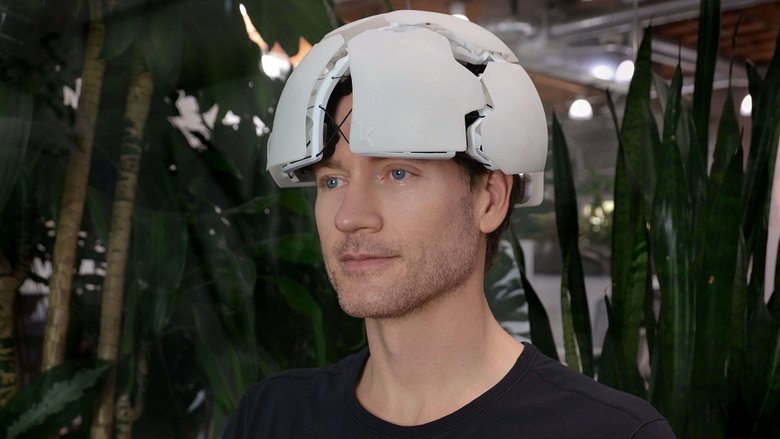
[ad_1]
media They told How the super-rich are trying to turn back time and achieve immortality.
Brian Johnson: 46 feels like 18
In a privileged area of Los Angeles, in the midst of affluent but quite ordinary houses inhabited by wealthy mortals, stands a huge black building of extravagant architecture.
![]()
![]()
Continue after ad
Inside this building, Brian Johnson, a 46-year-old millionaire, is carrying out what he calls “the greatest revolution in the history of Homo sapiens.”
The biotech and IT entrepreneur, venture capitalist and popular video blogger has spent the past three years working towards one goal: immortality. During this time, Johnson spent more than $6 million developing a personal immortality system called Blueprint. A team of more than 30 medical professionals, led by 30-year-old Oliver Zolman, who calls himself the “Rejuvenation Expert,” is working to reduce Johnson’s biological age by developing, tweaking and honing his special anti-aging treatments.

![]()
![]()
Continue after ad
Johnson’s day begins at 4:53 a.m. with more than 30 (according to some sources, more than 100) different vitamins, minerals, dietary supplements, and medications designed to optimize biological processes in the body to “upgrade” its function and prevent the development of disease.
The dietary supplements and medications Johnson takes include the polyphenols lycopene and curcumin, zinc, the anti-diabetic drug metformin (also thought to prevent the development of intestinal polyps and inhibit the aging process at the cellular level), growth hormone to maintain muscle mass, low doses of lithium (a drug used to treat bipolar disorder) to rejuvenate brain cells and preserve memory, and more.
Johnson follows an extremely strict vegan diet, consuming 1,977 calories per day, all of which he eats in three meals before 11:30 a.m.
According to Johnson, he consumes more than 30 kilograms of vegetables every month, mostly in the form of purees and smoothies.
Every morning, Johnson spends two and a half hours doing a specially designed physical exercise routine, and does high-intensity interval training three times a week.
Johnson’s sleep is also subject to strict standards: he goes to bed at 8:30 p.m., always alone, in a room that is completely blocked from light and kept at a cool temperature, sleeping on a high-tech mattress with an adjustable surface. The temperature throughout the night is determined by body temperature.
Johnson’s lifestyle also includes regularly wearing a baseball cap with a built-in red light emitter to stimulate hair growth, blood transfusions for his 18-year-old son, laser polishing of his facial skin to eliminate wrinkles and stimulate collagen production, and lighting therapy designed to regulate circadian rhythms, among other things.
At night, Johnson places an electronic device on his penis designed to record nocturnal erections. The duration of nocturnal erections is a biomarker that indicates sexual function and the state of the cardiovascular system. In addition, physical condition and function are monitored through monthly colonoscopies, collection of stool samples, blood tests, MRIs, etc.
The goal of all of Johnson’s self-experiments is to make his 46-year-old body not only look like an 18-year-old, but function like one.
Can he get closer to that goal? Judging from the medical information Johnson posted online, yes. Johnson now has the heart of a 37-year-old, the bones of a 30-year-old, the skin of a 28-year-old, the lung capacity and health of an 18-year-old, and the gums of an 18-year-old. The level of inflammation in a 17-year-old is 66% lower than that of a 10-year-old. As of 2021, Johnson has successfully lowered his epigenetic (biological) age by more than 5 years.
Epigenetics is an actively developing branch of genetics that studies how our gene activity is affected by lifestyle and environment. For example, a person who drinks and smokes a lot may appear biologically much older than a person of the same age who leads a healthier lifestyle. Epigenetics suggests that not only do all people age at different rates, but even different organs and tissues within the same body age at different rates.
“The Immortal Class”
Johnson is not alone in his quest to turn back the clock, hack the biological programming built into human cells, stop aging and achieve immortality.
But it must be said that the main driving force behind this idea is a small group of very wealthy, in principle quite healthy, not yet old people who have achieved a lot in the field of entrepreneurship and are confident that absolutely any problem can be solved, including the problem that leads to the natural end of human life. You just need to know how to solve it, a little luck, a lot of persistence and lots and lots of money.
While launching new social networks, promoting startups or online trading companies, many of the “Kings of Silicon Valley” have projects related to life extension and invest billions of dollars in them. Some, such as Jeff Bezos (Amazon), Peter Thiel (PayPal) or Sam Altman (OpenAI), are investing in companies that fight aging at the cellular level. Others, such as Sergey Brin (Google) or Sean Parker (Napster, Plaxo, Facebook – the latter is owned by the company Meta, considered extremist in Russia) – fund research aimed at fighting age-related diseases such as cancer or Parkinson’s disease.
Moreover, many of them, like Brian Johnson, are so obsessed with the idea of immortality that they invest in extending the lifespan of their own bodies, often under the guidance of experts in the field of rejuvenation, who are increasingly numerous due to growing demand and have a whole team of doctors.
Some people restrict themselves to quitting smoking, drinking, dieting, training, and taking dietary supplements.
But some extreme sports enthusiasts go even further:
- Implanting electronic devices into the body to improve its function and monitor various parameters,
- Taking mountains of pills,
- Injections of stem cells and drugs used to gene-edit cells,
- Purify the blood using plasmapheresis,
- Take infrared baths or ice baths regularly.
- Lying in a hyperbaric oxygen chamber,
- Fecal microbiota transplantation
- and conduct many other dangerous procedures, Its safety and effectiveness have not been proven.
In 2023, the competition among billionaires to see who is closest to entering the elite “immortal class” reached new heights: Johnson established Reviving the Olympics (“Rejuvenation Olympics”) – Participants compete not in the development of physical abilities, but in who is the best “Benjamin Button”, i.e. how fast and how much they can delay their own aging and become younger from a biological point of view.
It’s a race in reverse, where the slowest runner wins, and it’s not without reason that the slogan on the Renaissance Olympics website, “He who doesn’t cross the finish line wins,” is true.
To track their progress, participants in the Renaissance Olympics regularly undergo expensive blood tests to measure a panel of biomarkers that indicate epigenetic age and, depending on the results, alter their diets, training regimens, medications or other parameters.
What do scientists think about this?
Even if you did manage to slow down the rate of biological aging, that wouldn’t mean you’d live longer, let alone achieve immortality – which is the view of most experts.
“Death is not an option, it’s written in our genes”For example, Pinchas Cohen, dean of the School of Gerontology at the University of Southern California, stressed that he does not rule out that people will indeed live longer in the future, because even throughout the 20th century, the life expectancy of people in developed countries in the world increased from about 50 years old at the beginning of the century to more than 80 years old at the end of the century. But immortality is impossible.
“We have absolutely no scientific evidence that this is possible in principle, or even any technological way to show that we as a species are heading in that direction.” “If you want immortality, go to church,” added Eric Welding, director of the Buck Institute for Research on Aging. “If I had the slightest belief that this would be possible, I’d be happy. But these are just fantasies.”
“I call all this hype about aging and immortality the second oldest profession,” said Stuart Olshansky, an aging expert and professor of epidemiology and biostatistics at the University of Illinois. “More than 2,000 years ago, people were yearning for a magical elixir that would make them healthy and immortal. The only difference is that now the ‘fountain of youth’ is maintained by wealthy people who want to make more money from it.”
[ad_2]
Source link




